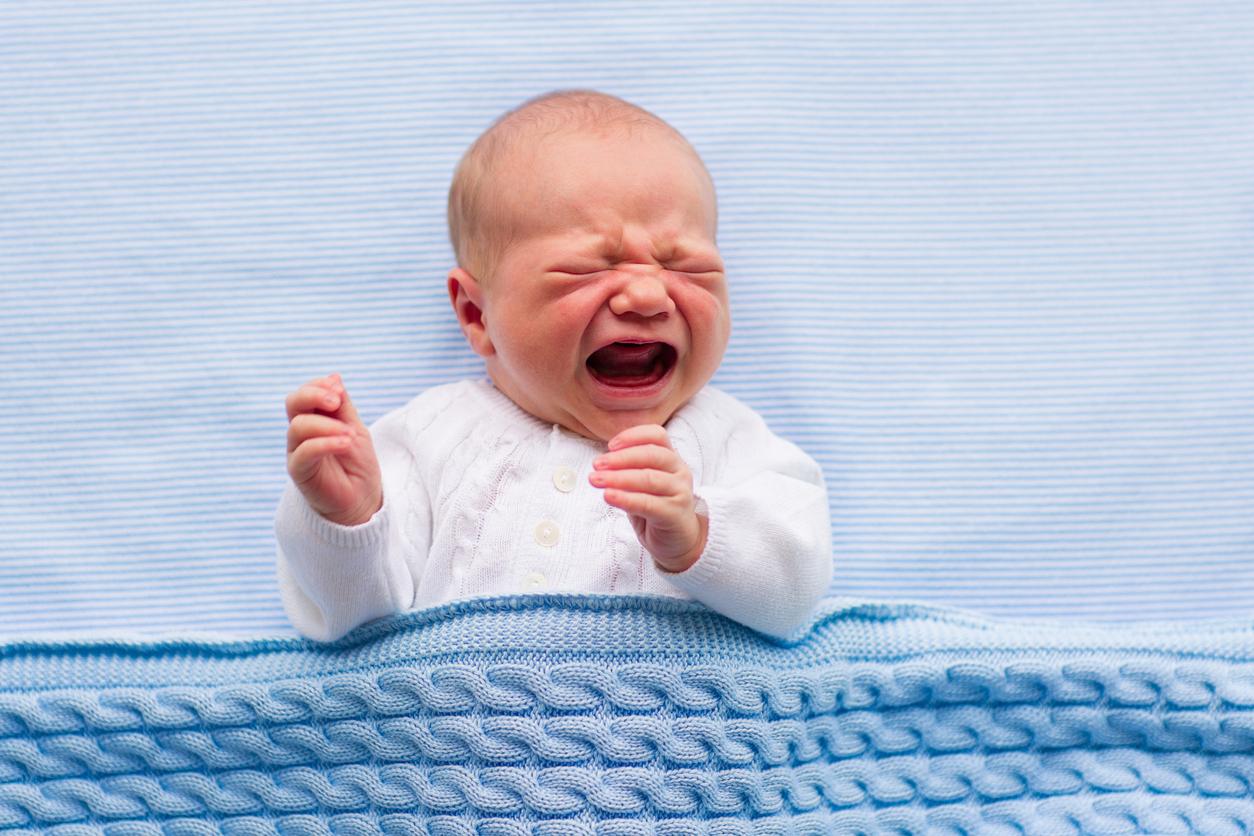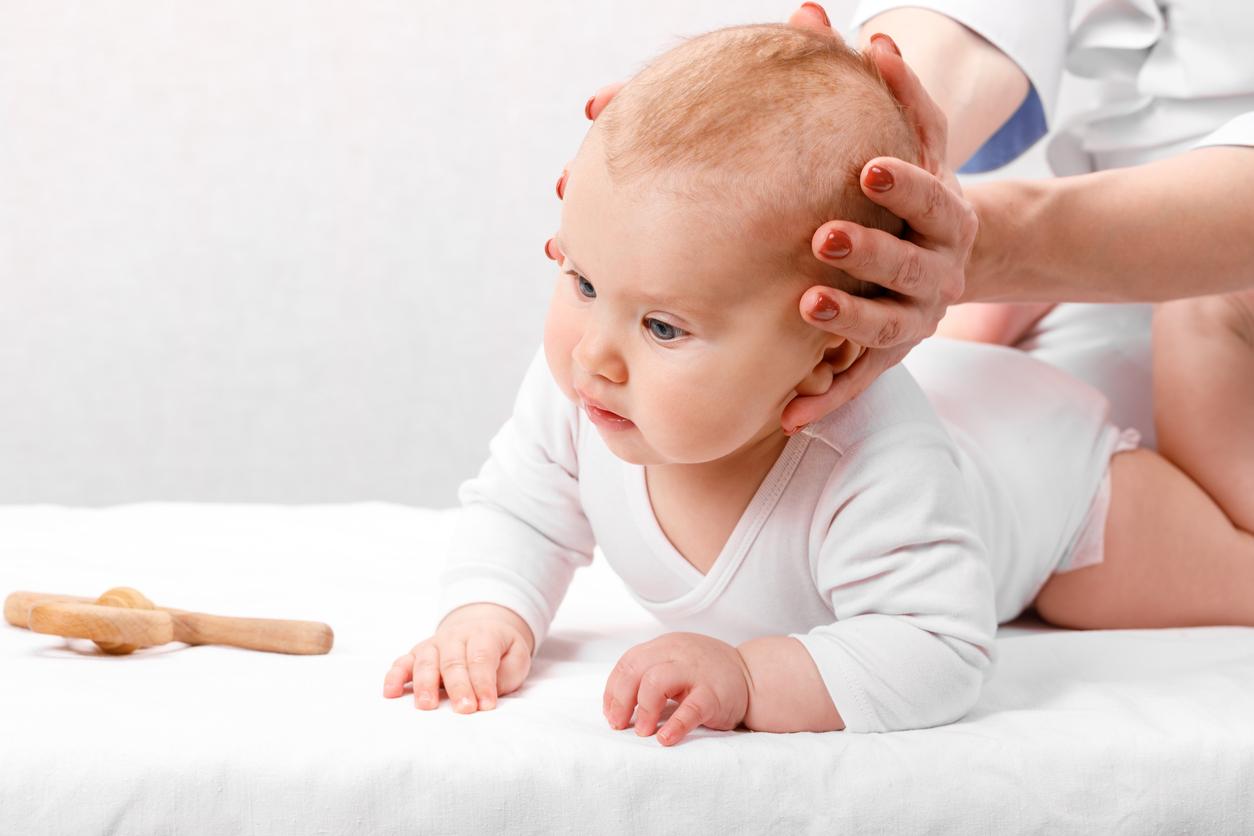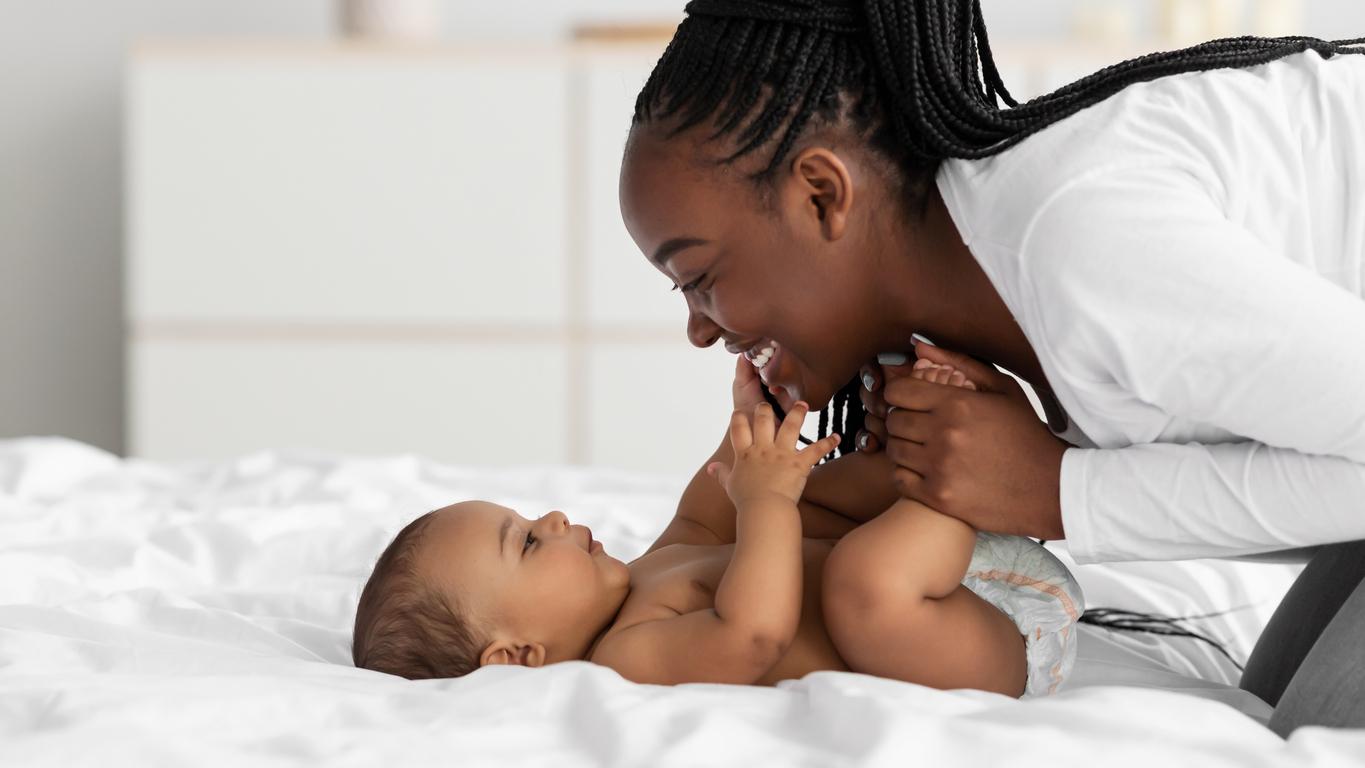A new survey reveals that there are still many beliefs and misconceptions about baby sleep.

- 62% of parents believe that babies should sometimes be left to cry in their bed so that they learn to sleep alone.
- One in 5 people think that a non-breastfed child sleeps better.
- One in 4 respondents think that if we eliminate the nap, the child will sleep through the night.
It is not uncommon for young parents, and even the most seasoned ones, to feel distraught by their baby’s crying, especially at night. And it is not uncommon for them to receive advice or tips from their loved ones and health professionals. And in the end, the French are quite divided on the management of toddlers’ crying and sleep, as revealed by a survey by Livi and the Opinéa Institute, published on October 4.
Baby’s bedtime: an unpleasant moment for a third of parents
To begin with some good news from this survey focused on 1,012 French adults with at least 1 child: 9 out of 10 parents assure that their little one has a good quality of sleep and that they sleep through the night. And going to bed is a pleasant time of the day for many parents (62%). More than 7 out of 10 respondents have implemented rituals with their child to make bedtime easier. More precisely, the rate is 81% among mothers and 74% among fathers.
On the other hand, 32% of those questioned recognize that going to bed is an unpleasant time or associate it with a negative emotion (anxiety, nervousness, impatience, fear). Among the difficulties encountered, the question of managing crying. 62% of parents surveyed believe that sometimes you have to let them cry in their bed so that they learn to sleep alone. However, there is a marked difference between dads and moms (68% vs 55%).
“The debate over the practice of letting a baby cry when falling asleep is complex and raises diverse perspectives. Several studies and experts in child psychology have expressed divergent opinions regarding the effects of this method on child development. child, and warn against letting a baby cry alone in his room, especially during the restless sleep phase which follows falling asleep. There are different alternatives to support the child’s sleep without resorting to letting him cry. “explains Doctor Sharmine Grimonprez, general practitioner at Livi. She then added: “We can also emphasize the importance of the infant’s emotional security for their neuro-cognitive development. In case of doubt or if parents feel helpless in the face of their child’s restless sleep, they should not hesitate to consult and to ask to be accompanied, for the well-being of all.”
Sleep: letting it cry divides generations
Letting him cry is fortunately not the only method for babies to fall into the arms of Morpheus. Some experts highlight the benefits of swaddling. That is to say, wrapping a baby in a blanket to limit his movements in order to remind him of life in his mother’s womb and to soothe his cries. There is a generation gap on this point. The technique appeals to 64.9% of parents aged 18 to 35 compared to only 35% of those over 45.
Another subject or a gap linked to age is visible: one in 4 respondents think that if we eliminate the nap, the child will achieve full nights. But among the respondents, 37% are between 18 and 35 years old and 32% are dads.
“The relationship between daytime naps and nighttime sleep quality in children depends on several factors, including the child’s age, sleep habits, and fatigue level. For toddlers and young children, Naps are essential to their development and well-being. In general, children who lack sleep during the day can become overtired, which can paradoxically disrupt their nighttime sleep. the need to take a nap gradually diminishes”explains the general practitioner. “Overall, the role of naps changes with the age of the child, and it is important to adapt the duration and frequency of naps based on the specific needs of each child.”

19% of parents think that a non-breastfed child sleeps better
Food also feeds preconceived ideas about sleep. Nearly one in five parents (19%) believe that a non-breastfed baby sleeps better than a breastfed child. Surprisingly, this opinion is shared more by the youngest parents (28%) and fathers (22%).
“An infant’s sleep is influenced by many factors, not just the feeding method. The sleep cycles of infants, whether breastfed or not, are physiologically short, especially in the first few months The circadian rhythm, which regulates periods of wakefulness and sleep, is not yet fully developed in very young babies. Therefore, their sleep is naturally split, whether they are breastfed or bottle fed. Additionally, studies highlight that breastfed babies, although they wake more frequently to feed, do not necessarily experience poorer quality sleep. In fact, breastfeeding has benefits for emotional regulation and closeness. between mother and child, which can soothe the baby and contribute to their overall well-being, including during sleep.explains Dr. Sharmine Grimonprez















